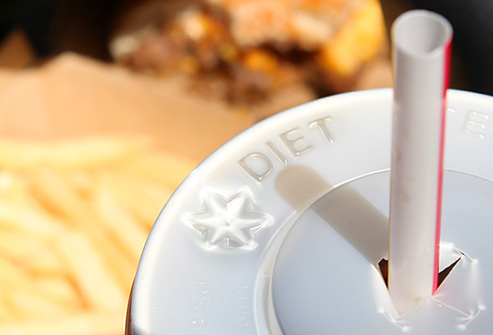Is healthy really healthy?
The increase in number of health conscious people has led to the arrival of, ‘fat-free’, ‘cholesterol-free’, and frozen products. Super-marts are loaded with snacks, cookies and even chocolates that are free from calories! (seriously?) Somewhere, in this fight-to-get-fit, the “real health foods” have taken a backseat! And the question arises, are they really safe? Is fat free really fat free? Is cholesterol free food really good for your heart health?
Your kitchen could be filled with foods you thought were healthy but are loaded with substances that could harm your body in the long run. Let me mention a few!
1. Fruit juices: Just because the celebrity in the commercial says “contains real fruit juice” does not make it 100% pure and harmless! Drinks labelled as “real fruit juice,” contains no trans fat,” or “contains no sugar” often contain so much sugar, you might as well be drinking a glass of water with two tablespoon full of it. The truth is that these juices contain so many preservatives that they come with an expiry date that is months after their manufacturing date! You keep a glass of orange juice for 5 hours in room temperature and try to drink it! (I think I made my point clear). Even 100 percent juices should be enjoyed in temperance.
2. Frozen Yogurt: These are generally advertised in the category of health products. Yogurts have a tart-like taste, they are sour and not so creamy! If your frozen yogurt has a taste similar to that of an ice cream, it contains added sugar and other preservatives as well. Why don’t you try saving some money and petrol and your health by adding some fresh fruits to your curd and enjoy having a ‘healthy’ and ‘fat free’ home-made yogurt!
3. Anything fat free/sugar free: There is a difference between fat free food and calorie free food. Fat free food doesn’t mean it is free from all those unwanted calories. So, next time while buying a ‘fat free’ product, don’t forget to check the nutrition labels just to make sure that you’re getting a wholesome product and not just one that’s fat-free. Calories, sodium, fiber, and vitamins and minerals are all aspects you should consider in addition to fat.
4. Multi grain products: Terms like multi-grain and whole wheat sound healthy, but they may not actually have the grains to keep your heart healthy. Many breads that have labels “multi-grain” and “wheat” are actually made with refined grains. These “grains” are often bleached and refined in bad conditions. Having whole wheat breads doesn’t serve any purpose either! Go for chapatis and dry fruits.
5. Vegetable oils: The “oil” used for frying in fast food restaurants, is mostly palm oil, an almost saturated oil. It’s semi-solid at room temperature, but turns liquid when heated and used for frying, and it’s definitely not healthy. Go for extra virgin olive oil.
Most people do not have the time to investigate, cook, and even to eat proper meals and therefore they opt for instant foods and ready-to-cook materials. The so-called Healthy foods, even if grown in fields have an ill effect on the consumers health, because most foods are deficient in essential macro and micro nutrients causing excessive oxidative stress and Free radical damage. Thus, leading to most lifestyle diseases.
You can only be fit when you’re healthy!





